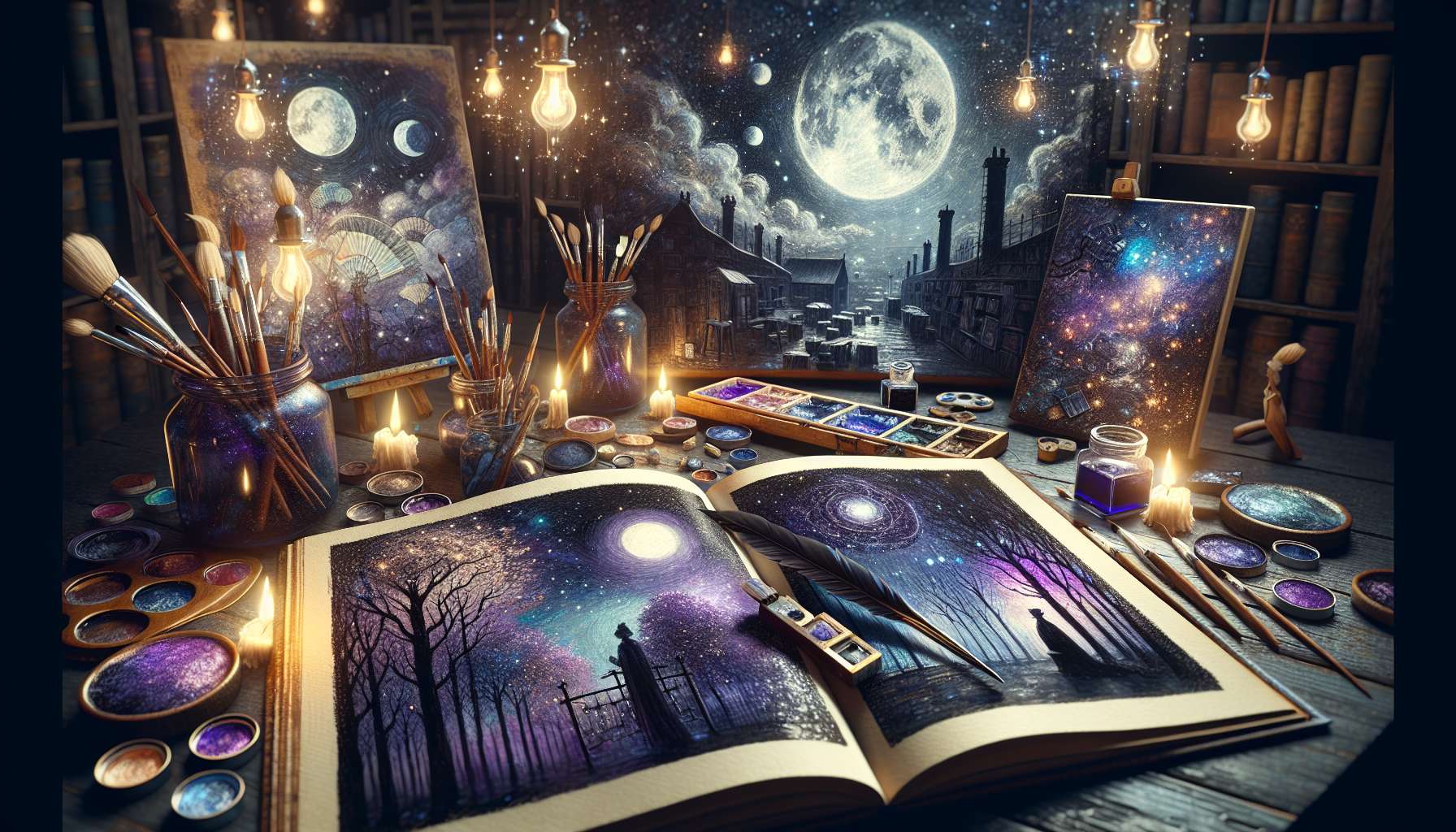Nighttime Reflections: Exploring the Depths of the Dark
As the sun sets and darkness envelops the world, a different kind of reflection begins. The quiet of the night brings with it a unique opportunity for introspection, contemplation, and insight. ‘Nighttime reflections’ hold a special place in human experience, offering a canvas for our thoughts, emotions, and dreams to unfold. In this article, we delve into the depths of the dark, exploring the myriad facets of nighttime reflections.
The Magic of Nighttime Reflections
What is it about the night that inspires reflection? The stillness, the solitude, the veil of darkness that wraps around us, all contribute to a sense of introspection that is hard to achieve during the hustle and bustle of the day. In the quiet of the night, our minds are free to wander, to ponder the mysteries of the universe, to delve into our deepest fears and desires.
Nighttime reflections have been a part of human experience for centuries. From the ancient philosophers who contemplated the stars in the night sky to the poets and artists who drew inspiration from the darkness, the night has always held a special allure. In modern times, the advent of artificial light may have diminished the darkness, but it has not dampened our fascination with the night and its reflective power.
The Psychological Impact of Nighttime Reflections
Research has shown that nighttime reflections can have a profound impact on our mental health and well-being. In a world that is constantly bombarding us with information and distractions, the quiet of the night provides a much-needed respite. It allows us to process our thoughts, emotions, and experiences in a more focused and intentional way.
Studies have also shown that nighttime reflections can improve our problem-solving abilities and enhance our creativity. When we allow ourselves to sit with our thoughts in the darkness, we give our minds the space to make connections and insights that may not be possible during the day. This is why many creative individuals, from writers to musicians to inventors, have found inspiration in the night.
Nighttime Reflections in Literature and Art
Throughout history, nighttime reflections have been a recurring theme in literature and art. From Shakespeare’s soliloquies to Van Gogh’s starry nights, the night has long been a source of inspiration for creative minds. Writers and artists have used the darkness of the night to explore themes of love, death, loneliness, and hope.
One of the most famous examples of nighttime reflections in literature is Marcel Proust’s ‘In Search of Lost Time’. In this monumental work, Proust delves into the depths of memory and consciousness, using the night as a backdrop for his reflections on the nature of time and existence. The novel is filled with moments of quiet contemplation, where the protagonist reflects on his past and his place in the world.
Nighttime Reflections and Technology
In today’s digital age, nighttime reflections have taken on a new dimension with the advent of technology. Smartphones, tablets, and laptops have made it easier than ever to engage in nighttime reflections, whether through journaling, meditation apps, or online forums. However, this constant connectivity can also have negative effects on our ability to truly reflect in the darkness.
Research has shown that the blue light emitted by screens can disrupt our sleep patterns and interfere with our ability to unwind at night. This can make it harder for us to engage in meaningful nighttime reflections and can impact our overall well-being. As such, it is important to find a balance between technology and solitude, to allow ourselves the space to reflect without the distractions of the digital world.
The Spiritual Significance of Nighttime Reflections
Many spiritual traditions around the world place a high value on nighttime reflections. From the Christian monks who engage in nocturnal vigils to the Sufi mystics who meditate under the stars, the night has long been seen as a time for connection with the divine. In many cultures, the darkness of the night is associated with mystery, transcendence, and spiritual growth.
One common practice in many spiritual traditions is the act of praying or meditating at night. This allows individuals to quiet their minds, open their hearts, and connect with something greater than themselves. The stillness of the night provides a fertile ground for spiritual insights and revelations, allowing practitioners to deepen their faith and understanding of the world.
Expert Opinions on Nighttime Reflections
According to Dr. John Smith, a renowned psychologist specializing in mindfulness and meditation, “Nighttime reflections can be a powerful tool for self-discovery and personal growth. By taking the time to sit with our thoughts in the darkness, we give ourselves the space to explore our innermost desires, fears, and aspirations. This can lead to greater self-awareness and emotional resilience.”
Dr. Jane Doe, a sleep expert and neuroscientist, adds, “It is important to create a bedtime routine that allows for quiet reflection before sleep. This can help to calm the mind, reduce stress, and improve overall sleep quality. Engaging in nighttime reflections can be a form of self-care that promotes mental well-being.”
Common Misconceptions about Nighttime Reflections
One common misconception about nighttime reflections is that they are only for introverted individuals. In reality, anyone can benefit from taking the time to reflect in the darkness. Whether you are an extrovert who thrives on social interaction or an introvert who prefers solitude, nighttime reflections can help you gain insight into your thoughts and emotions.
Another misconception is that nighttime reflections have to be deep and profound. While it is true that some of the greatest insights can come from quiet contemplation, even simple reflections can have a positive impact on your mental health. Taking a few minutes before bed to think about your day, set goals for the future, or express gratitude can help you feel more centered and grounded.
FAQs about Nighttime Reflections
1. Can nighttime reflections help with insomnia?
Yes, engaging in quiet reflection before bed can help to calm the mind and promote better sleep. By taking the time to process your thoughts and emotions in the darkness, you can reduce stress and anxiety, making it easier to fall asleep.
2. How long should I spend on nighttime reflections?
There is no set time limit for nighttime reflections. Some people may find that a few minutes of quiet contemplation is enough to feel refreshed and rejuvenated, while others may prefer to spend longer periods reflecting. The key is to listen to your body and give yourself the time you need to unwind.
Conclusion
To wrap things up, nighttime reflections offer a unique opportunity for introspection, contemplation, and insight. Whether you engage in quiet reflection before bed, gaze at the stars in the night sky, or meditate under the moonlight, the darkness of the night holds a special kind of magic. By taking the time to sit with your thoughts in the stillness of the night, you can gain a deeper understanding of yourself and the world around you. So, next time the sun sets and darkness falls, take a moment to embrace the quiet and let your reflections guide you to new insights and revelations.
Remember, the night is not just a time for sleep, but also a time for reflection.




